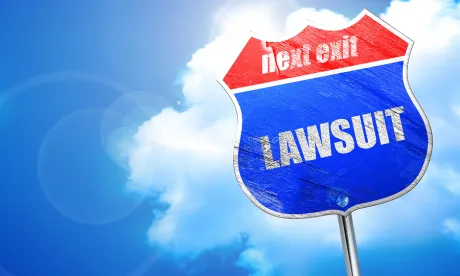A decision late last year from the Massachusetts Supreme Judicial Court (SJC), 477 Harrison Ave., LLC v. JACE Boston, LLC (pdf), gives real estate developers a surprising new weapon when confronted by litigious neighbors.
The dispute began in 2012, when the plaintiff developer obtained zoning relief to redevelop a residential property in Boston’s South End. After several years of legal challenges by abutting property owners, the developer abandoned that zoning relief and pursued a new project that appeared to require no zoning relief. When it turned out the developer’s new project did require zoning relief, the abutters seized the opportunity to appeal the new zoning relief as well.
While the abutters’ new appeal was pending, the developer filed a separate case against them alleging abuse of process and violations of the Massachusetts unfair trade practices statute, M.G.L. c. 93A (Chapter 93A). After the abutters’ efforts to dismiss the new case were rejected, they filed counterclaims against the developer for breach of contract and abuse of process.
The developer moved to dismiss the abutters’ counterclaims under Massachusetts’ so-called “anti-SLAPP” statute, M.G.L. c. 231, § 59H. For the uninitiated, a SLAPP suit is a case filed to intimidate or deter a party from engaging in constitutionally protected “petitioning activity,” which includes the filing of legitimate legal claims. SLAPP stands for Strategic Litigation Against Public Participation. The anti-SLAPP statute allows a defendant to file a “special motion to dismiss” seeking early dismissal of claims that have no legitimate purpose other than silencing the defendant by the threat of costly litigation and the possibility of having to pay damages.
Here, the developer engaged in protected petitioning activity by filing suit against the abutters for abuse of process and violations of Chapter 93A. When the abutters asserted counterclaims, the developer moved to dismiss them on the ground that they were retaliatory, i.e., that they were SLAPP claims intended to intimidate the developer into abandoning its suit. The trial judge disagreed and denied the developer’s motion. The developer appealed that decision and the SJC reversed, holding that the abutters’ counterclaims should have been dismissed because the abutters’ primary motivation in bringing those claims was to intimidate the developer into dropping its own lawsuit, not to recover damages for the developer’s alleged misconduct.
The abutters claimed that the developer initiated suit for the improper purpose of obtaining advantages unrelated to the litigation itself, to compel the abutters to: abandon their opposition to the developer’s project, give up their property interests, grant the developer an easement, and agree to the location of a disputed street. To survive dismissal under the anti-SLAPP statute, the abutters had to demonstrate that their abuse of process claim did not “interfere with and burden” the developer’s petitioning rights, i.e., its right to initiate litigation in the first instance. The SJC held that this was an “insurmountable burden in a case, such as this, where the ‘damages for the personal harm’ [to the abutters] are inextricably entwined with the contemporaneous conduct of the litigation itself.”
In the SJC’s view, the abutters’ counterclaims “objectively burdened” the developer’s petitioning rights by “raising the specter of mounting liability for defense costs and other damages associated with the ongoing litigation.” The court went so far as to analogize the abutters’ abuse-of-process counterclaim to the proverbial Sword of Damocles, with the possibility of ever-increasing liability hanging over the developer’s head should it choose to continue to prosecute its own claims. This is precisely the situation that the anti-SLAPP statute is intended to prevent by allowing for early dismissal of retaliatory claims that have no factual basis independent of the plaintiff’s protected petitioning activity – here, the developer’s decision to commence its separate lawsuit. It should be noted that, under the anti-SLAPP statute, allowance of a party’s special motion to dismiss requires the court to award that party its reasonable attorneys’ fees and costs incurred in defending against SLAPP claims, so 477 Harrison is one of those rare cases where a developer will be able to recover some of its attorneys’ fees from the project’s opponents.
What does all this mean for real estate developers facing opposition from abutters and neighborhood groups? You and your counsel should be on the lookout for similar retaliatory claims filed in connection with your projects. Abuse of process claims in particular should be scrutinized for compliance – or lack thereof – with the SJC’s holding in 477 Harrison. The court broadly held that “a counterclaimant asserting damages caused by the conduct of the same proceedings, e.g., attorney’s fees and costs, cannot establish that its counterclaim is not a SLAPP suit . . . .” In other words, every counterclaim seeking damages allegedly caused by the plaintiff’s initiation of that same case is subject to dismissal under the anti-SLAPP statute, because “the primary motivation of such a claim is to burden the opposing party’s petitioning rights.”
While this decision won’t eliminate legal challenges by neighboring landowners, it at least removes one arrow from their quiver and provides developers with a means to fight back.


 />i
/>i
